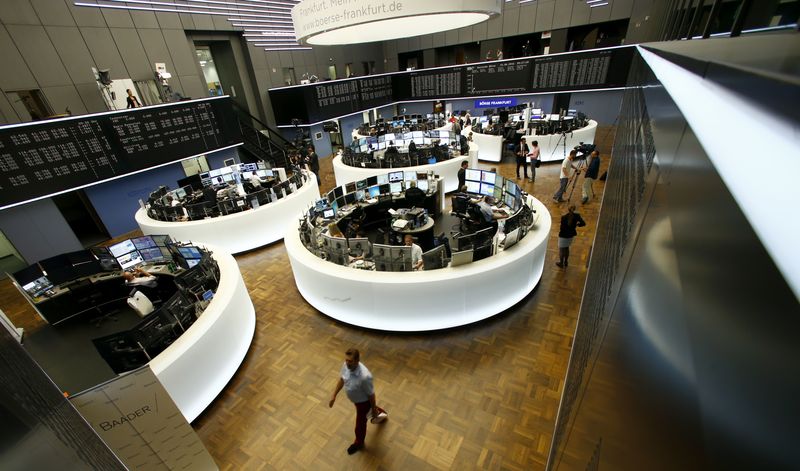FOMC minutes; Delta, PepsiCo to report; gold retreats - what’s moving markets
Investing.com - European stock markets rallied on Wednesday, with equities in France perfomring strongly despite ongoing political upheaval in the country.
The pan-European Stoxx 600 index climbed 0.8%, while the DAX in Germany increased by 1%, and the FTSE 100 in the United Kingdom gained 0.7%. Sectors like industrials, basic resources, banks, and insurance outperformed.
France’s CAC 40, meanwhile, moved up 1.1%. The index has been volatile throughout the week, fueled by the surprise resignation of Prime Minister Sebastien Lecornu on Monday. The outgoing Lecornu, who is holding last-minute talks over forming a new government, is set to report back to French President Emmanuel Macron later today about any possible breakthrough.
Still, the turmoil in Europe’s second-largest economy has not gone unnoticed by investors, who are particularly attempting to gauge the path ahead for France’s large budget deficit.
Edouard Philippe, Macron’s first premier in 2017, urged the president to leave his position in "an orderly manner" to help resolve the crisis. But Lecornu has said a deal may be reached on France’s budget by the end of the year, which could in turn make a snap election less likely.
Beyond France, the European automotive sector slipped after German luxury carmaker BMW slashed its 2025 earnings forecast, citing shifting U.S. tariff policies and tepid growth in the all-important Chinese vehicle market. The broader autos index dropped by 1.6%.
Regional semiconductor giants like ASML and ASMI also fell, dragged down by a call from some U.S. lawmakers for a wider ban by Washington and its allies on chipmaking equipment to China. A bipartisan investigation found that inconsistencies within rules in the U.S., Japan and the Netherlands allowed non-American chip gear manufactures to sell to some Chinese business that U.S. firms could not.
Gold tops $4,000 an ounce
Gold was in focus for many investors after prices of the yellow metal soared above $4,000 per ounce for the first time.
Market participants like private investors and central banks have sought to take advantage of the safe-haven status of gold during a time of political upheaval and economic uncertainty.
Bullion has now surged by over 50% so far this year, posting a series of fresh all-time peaks along the way. It is on track to jump to its best year since 1979.
Analysts have noted that an ongoing U.S. government shutdown, combined with a weakening of other perceived havens such as the dollar and U.S. government bonds due to anticipated Federal Reserve interest rate cuts and concerns over America’s fiscal profile, has burnished gold.
The Japanese yen, another traditional haven, took a knock as well following the election of a new dovish leader of the ruling Liberal Democratic Party. Lecornu’s resignation has given additional support to gold as well.
Many exchange-traded funds have also been expanding their holdings of gold as anticipation of Fed rate reductions intensifies, analysts at ING said in a note. Some central banks are also buying the precious metal, with the People’s Bank of China in particular extending its gold buying streak in September for an eleventh straight month despite record high prices.
